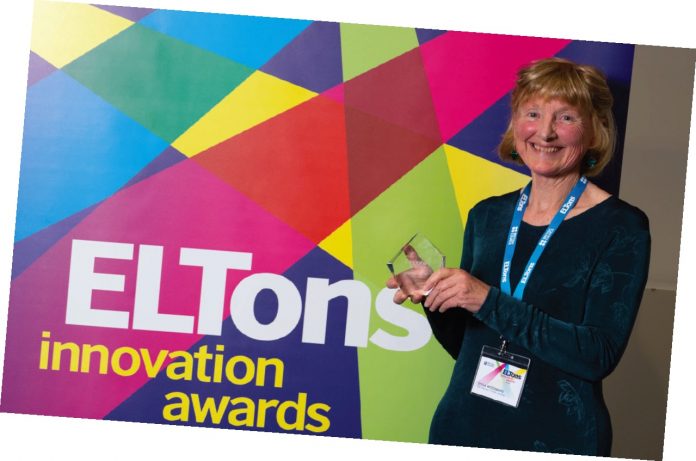The glitzy annual ELTons awards saw an often-neglected aspect of language teaching enjoying the limelight
There is always a moment, amidst the glitz and glamour of the ELTons awards, where even the most cynical observers feel proud of our profession.
After all, the annual British Council celebration of innovation in English language teaching is designed to showcase the very best of the industry from around the world.
For many in the audience, the magic moment may have come when the lifetime achievement award was announced and Tessa Woodward, author, teacher trainer and tireless champion of Tefl women, walked elegantly onto the stage. For others, it may have been the belated recognition of the work done for EAL learners in schools classes across Britain that pulled the heart strings.
The team behind the EAL Assessment Framework took the award for local innovation partnership jointly with Cambridge Assessment.
The project was commissioned and funded by the Bell Foundation.
The Framework, developed by a top team of academics from King’s College London and Cambridge University, was not the only Bell-funded project among the finalists. Family Skills, a 30-hour family literacy programme for EAL, was also shortlisted in a field that included an EAP course for Syrian academics and two courses from Brazil.
And for the tech heads among us, the highlight may have been the award for digital innovation for Learn Languages with Ruby Rei from Wibbu, a company on a mission to develop language acquisition tools that will ‘redirect the future of education’.
“Richard Wong exemplified everything the ELTons should stand for: perseverance, vision and international co-operation”
It seems to have pulled this trick off with a video game that incorporates good language teaching.

Pronunciation, long the Cinderella of language teaching, took centre stage with an award for BBC Learning English, which won the learner resources prize for Tim’s Pronunciation Workshop.
This popular online video series, which focuses on features of connected speech, is filmed, its star Tim Gibson revealed, in his producer’s shed.
Another winner from the world of pron was Matthew Hancock’s Pron Pack, which took the teacher resources award from under the noses of a galaxy of star names: Nik Peachey, Scott Thornbury and Hugh Deller, not to mention a number of major publishers.
But perhaps the moment to remember was the acceptance speech by Dr Richard Wong from the Hong Kong University of Education, who scooped the award for course innovation for Get Set, Go! Phonics published by OUP (China).
He spoke of his childhood in a poor part of Hong Kong without access to native-speakers of English and his dream for his phonics course, which he developed with academics in Israel and Canada.
For many observers, Richard Wong exemplified everything the ELTons should stand for: perseverance, vision and international co-operation.
He proved, if proof were needed, that English belongs not to the native-speakers but to the world.






